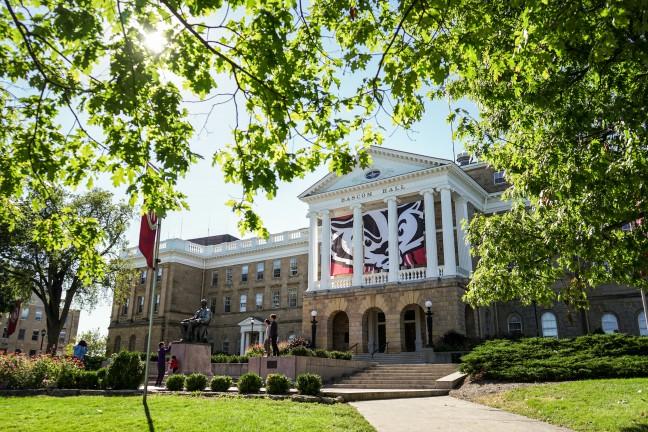Looking to inspire future badgers in science, technology, engineering and mathematics, three University of Wisconsin students received the Barry Goldwater Scholarship for researching what “no one thought of.”
The Barry Goldwater Scholarship and Excellence in Education Foundation identifies and supports a pool of highly qualified undergraduates majoring in STEM fields around the country. More than 1,000 students were nominated from 470 institutions for this award this year. Out of these, 240 were named Goldwater Scholars and 307 were chosen as honorable mentions.
One honoree, senior Emily Jewell, is pushing groundbreaking research for leading-edge bolted joints modeling analysis, which can be used to generate scientific innovation such as robotic arms, bridges and rockets.
UW’s mechanical engineering department now home to revolutionary technology
This research can serve as any “complete structural analysis,” Jewel said. Any heavy machinery needs this type of analysis to make sure it is safe to operate. But computers take some time to conduct this analysis and model the bolted joints, which slows the whole process.
“Bolted joints apply force between them causing contact. This contact creates nonlinearities, which is essentially highly complex physics,” Jewell said. “Currently there is no good method for modeling them, but my proposed method would decrease the time it takes for a computer to do this modeling from [a few days] to two to six hours.”
Before starting her research with bolted joints, Jewell interned at the high-profile aerospace company, ATA Engineering, where they had many different protocols for modeling bolted joints.
While there, Jewell found no one questioned the models they were using and no one ever thought to try and make a more efficient one. When she returned to UW, Matthew Allen, director of the UW structural dynamic research group, asked if she would be interested in doing research on bolted joint analysis and Jewell agreed.
Jewell, who is a mechanics engineering and mathematics major, recognized STEM as a traditionally male-dominated field of study. But she said other women shouldn’t let this discourage them. Instead, women should focus on their research and the people who doubted their work “will not matter” after it is successful.
Juniors Cory Cotter and Luke Oxtoby also received the Barry Goldwater Scholarship for their research. Junior Elizabeth Penn received an honorable mention.
New business school dean hopes to inspire women to enter male-dominated field
Jewell also volunteers at youth outreach events to inspire young girls and minorities to pursue STEM majors.
Currently, Jewell is working to calibrate her results and get them consistent with the results of simulations. She will then compare them with test data and eventually send out a toolbox companies can use to save days of work on their computers.
“Hardest part about any research is starting it, I didn’t know what I wanted to do,” Jewell said. “You just need to take the initiative to start and if it’s wrong, you will know it’s the wrong move. Just go back and correct it.”













